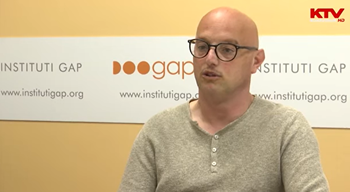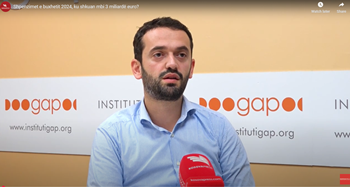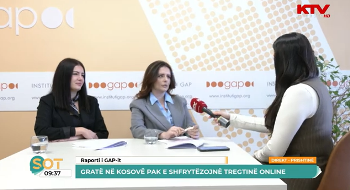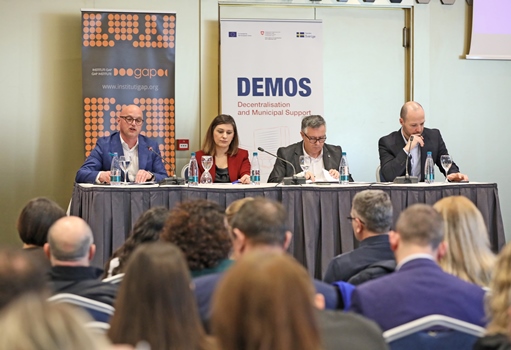GAP Institute organized a roundtable discussion on “Challenges of municipalities in managing investments, expenditures, revenues and properties”
09/03/2022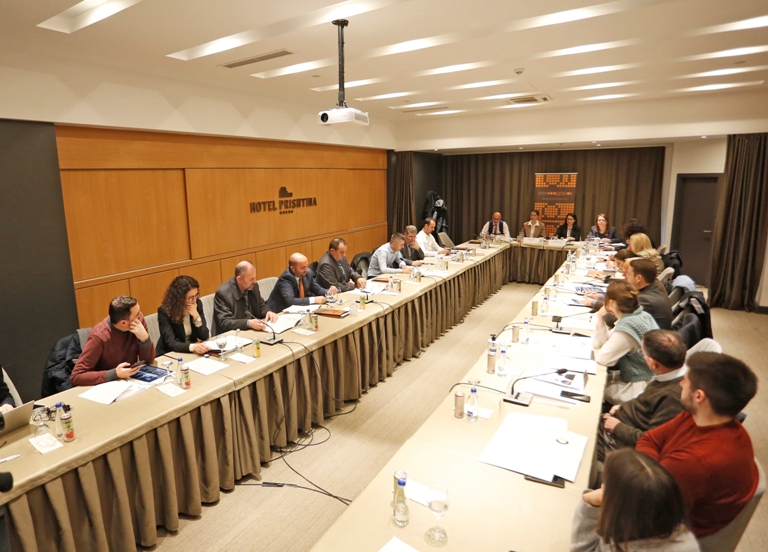
Today, GAP Institute organized a roundtable discussion on “Challenges of municipalities in managing investments, expenditures, revenues and properties.”
In her introductory speech, Rrona Zhuri, Researcher at GAP Institute, said that the purpose of this report was to analyze the findings of the National Audit Office (NAO) regarding public investments made by municipalities and the emerging issues in this regard, such as the inability of municipalities to implement sustainable, economically advantageous and timely completed investments.
Bekim Salihu, Policy Analyst at GAP Institute, presented the findings of the report and stated that the NAO annual financial regularity reports revealed several challenges that municipalities face in the process of public investments, budget spending, allocation of own source revenues, and management of public property. One major issue is the inability of municipalities to ensure timely implementation of investments. Another challenge which impairs municipal performance is the continued increase of outstanding and contingent liabilities of municipalities. By the end of 2020, the value of contingent liabilities of municipalities is 91 million Euro, with 34 million Euro in outstanding liabilities. Municipalities also face other challenges, such as the implementation of own source revenues. Municipalities generated own source revenues of 79 million Euro per year but failed to collect over 204 million Euro in 2020.
Vlora Spanca, Auditor General at the National Audit Office (NAO), stated that her institution has provided a considerable number of recommendations, however, the level of their implementation by municipalities is not satisfactory. Despite the NAO recommendations being rather concrete, only 41% of the recommendations have been taken into account in 2020. In 2020, the NAO issued 25 unqualified opinions and 15 qualified opinions. She also invited municipal representatives to take into account the recommendations issued by the NAO and expressed readiness for cooperation.
Hykmete Bajrami, Chair of the Public Finance Oversight Committee in the Assembly of Kosovo, stated that the mechanisms of the Assembly of Kosovo cannot address issues that fall at the local level, as mayors are directly elected and are accountable to municipal assemblies. She asked for municipal assemblies to be more active in addressing issues such as those presented by the analysis of GAP Institute. In her capacity as former Minister of Finance, she also highlighted the financial issues arising from collective agreements signed by the central level, whereas the burden of implementation falling on municipalities and their budgets.
Municipal budget and finance directors as well as other participants from civil society also contributed to this discussion.
To read the full report please click here.
Infographics can be found here.
#institutigap #gapinstitute #localgovernance
#undpkosovo #sdc #sida








